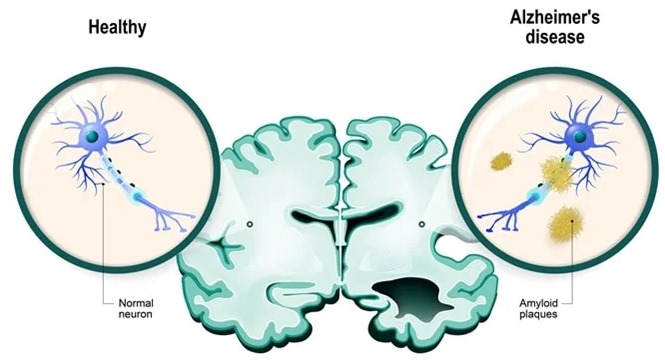
Stem Cell Therapy for Alzheimer’s Disease
Written by Amanda E. Lampong
Published on November 25, 2023
Alzheimer’s is a progressive illness, meaning that over many years, symptoms appear gradual and then become more severe. It has an impact on various brain activities. Mild memory loss is the first sign of Alzheimer’s disease. For instance, this could include losing track of recent discussions or occurrences as well as the names of locations and items.
In addition to memory loss, Alzheimer’s disease can cause a variety of cognitive and behavioural symptoms, such as:
- Language difficulties
- Impaired judgement and decision-making
- Changes in personality and behaviour
- Disorientation and confusion
- Decreased spatial awareness
People over 65 are primarily affected by Alzheimer’s disease. The likelihood of developing Alzheimer’s disease increases with age beyond 65. Some people also get this disease in their 40s or 50s. The term for this is early onset Alzheimer’s disease.
Other than age, there are few things that may make people more likely to get Alzheimer’s, which are:
- Gender (women get the disease more often than men)
- Family history
- Down syndrome
- Head injury
- Health conditions
Alzheimer’s disease is caused by an abnormal build-up of protein in the brain. The brain cells accumulate amyloid protein, which assembles into bigger clumps known as plaques. Tangles are created by the twisted fibers of another protein known as tau. The communication between nerve cells is obstructed by these plaques and tangles, which keeps the nerve cells from performing their functions. The gradual and continuous death of nerve cells leads to the symptoms of Alzheimer’s disease.

Stem cell therapy is a promising option for Alzheimer’s as it has the potential to treat Alzheimer’s patients. While stem cells come in many forms, the most recent variety are known as Induced Pluripotent Stem Cells, or the iPSCs.
Stem cell therapy with the iPSCs have the capacity to differentiate into various types of brain cells, including neurons, to replace damaged neurons in the Alzheimer’s-affected brain with healthy ones, potentially restoring lost cognitive functions. These stem cells can also release neurotropic factors, which could help preserve existing neurons and delay their degeneration.
Stem cell therapy also uses immune regulation to stop the course of Alzheimer’s disease for a prolonged amount of time. The immune system’s reaction to the iPSCs can be modulated, which may indirectly encourage tissue regeneration and possibly slow down the disease’s course.
Swiss Stem Cell offers the most advanced stem cell therapy for those who are suffering in Alzheimer’s disease. If you are looking for a different method to treat Alzheimer’s, please contact us to schedule a consultation.
REFERENCES
- Cleveland Clinic. (n.d.). Alzheimer’s Disease. https://my.clevelandclinic.org/health/diseases/9164-alzheimers-disease
- CDC. (n.d.). What is Alzheimer’s Disease https://www.cdc.gov/aging/aginginfo/alzheimers.htm#:~:text=Alzheimer’s%20disease%20is%20the%20most,thought%2C%20memory%2C%20and%20language.
- (2003, July 28). Causes of Alzheimer’s Disease. https://www.webmd.com/alzheimers/alzheimers-causes-risk-factors
